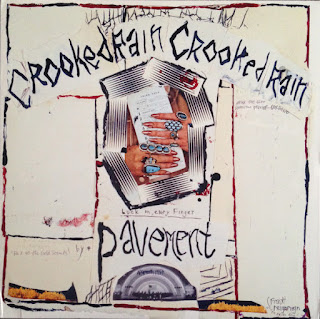Alanis Obomsawin - Bush Lady (Album Review)
Alanis Obomsawin - Bush Lady
(1985)
My copy: 2018 remastered reissue by Constellation.
Before she was an accomplished documentarian, Alanis Obomsawin saw recognition in the 1960s as a singer/songwriter, conveying the struggles and culture of her people (the Abenaki First Nations) through song in Canada. Bush Lady was her only recording, originally captured for a radio session and later reworked by Obomsawin in the late 80’s; it is a subtle, brooding, imaginative and enlightening musical experience that transcends typical structures.
Obomsawin’s vocals and shaman drum are accompanied by a humble quartet of oboe, cello, violin and flute - which appear at the perfect moments and do not detract from the voice. “Odana” is elegant and graceful, giving the quartet its brightest spotlight with dynamic compositions that swing from high to low, touching on dissonance as Obomsawin commands with her powerful voice, only to resolve again on a moment's notice. Obomsawin sings in her native language, in perfect control as she dives from gentle falsettos to a perfectly measured vibrato hum. The violin plucks inquisitively as we enter the first long passage - marked by quiet introductory strings, reverberating with mysterious notes as the low, mid-tempo beat of Obomsawin’s drum imbeds its roots within the song. The vocals switch from aggressive chanting to regretful howls - and in between these mournful choruses, Obomsawin recounts the tragic story of a Native women who is impregnated and abandoned by a colonizer, ruining her life as she cannot return home with a “blonde baby.”
The performance is stellar: Obomsawin’s voice holds an intense emotion, one that captures the fear and anguish felt by Native peoples as their worlds and identities were slowly torn apart by forced cultural infusion. This story culminates near the end of the track where the strings rise to high, tense cathartic wavering. The artist’s voice now gives in to sweet, maternal falsettos as if her spirit were relinquished to some greater spiritual power. This gripping two part story is easily the highlight of the record. Short poem “Of The Earth And Of The Sea” leads into “Theo,” a dimly-lit 16-minute story told in French around continued shaman-drumming. Obomsawin releases some of her grandest cries here, though she follows with somber, waning howls that tap into an ache that exists within humankind’s collective soul. Though the French is lost to me, the atmosphere of her voice is enough to compel a patient listener.
Eventually the instrumentation flutters to life with brighter progressions - flute and violin fluttering in excitement like the wings of a baby bird, until the second half of “Theo” reignites some dissonance. The entire piece climaxes with Obomsawin’s harshest outburst, which in turn reawakens the quartet - their music billowing from their instruments like ribbons of smoke from a communal fire. The record closes with “Nziwaldam,” a short solo for voice that fully displays the heaviness of Obomsawin’s heart.
Bush Lady is an important album, not just for its unique, at times avant-garde musical arrangements, but also for its emotional resonance and cultural weight. The careful selection of backing instruments also perfectly compliments the mood, switching from strife-laden angst to quaint pride. At the center of everything is Obomsawin and her drum - a true storyteller whose work as a singer should not be forgotten.




Comments
Post a Comment